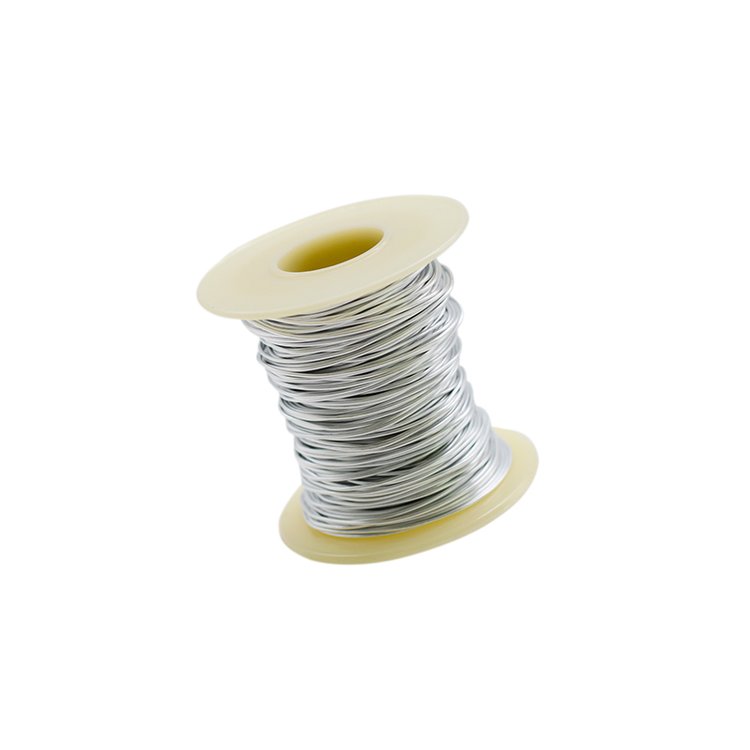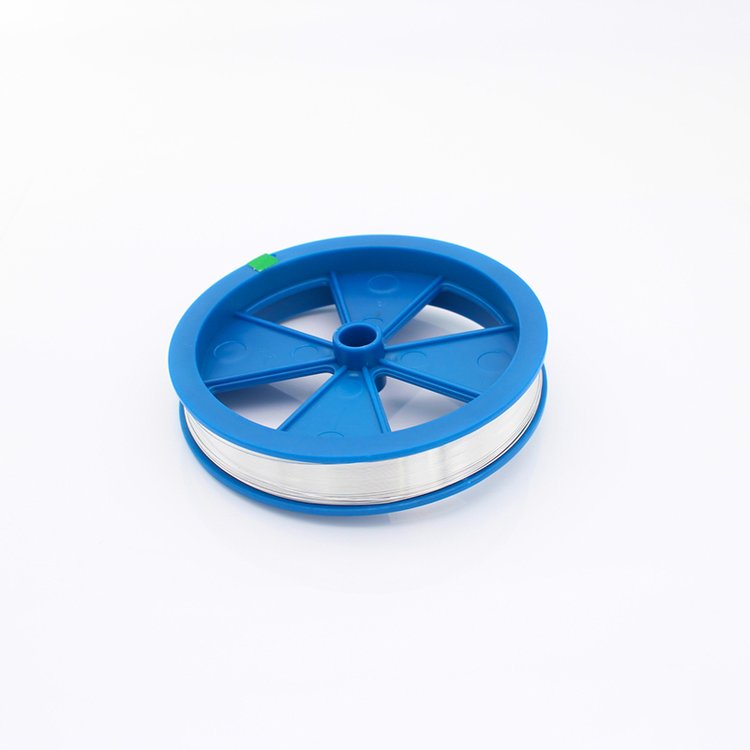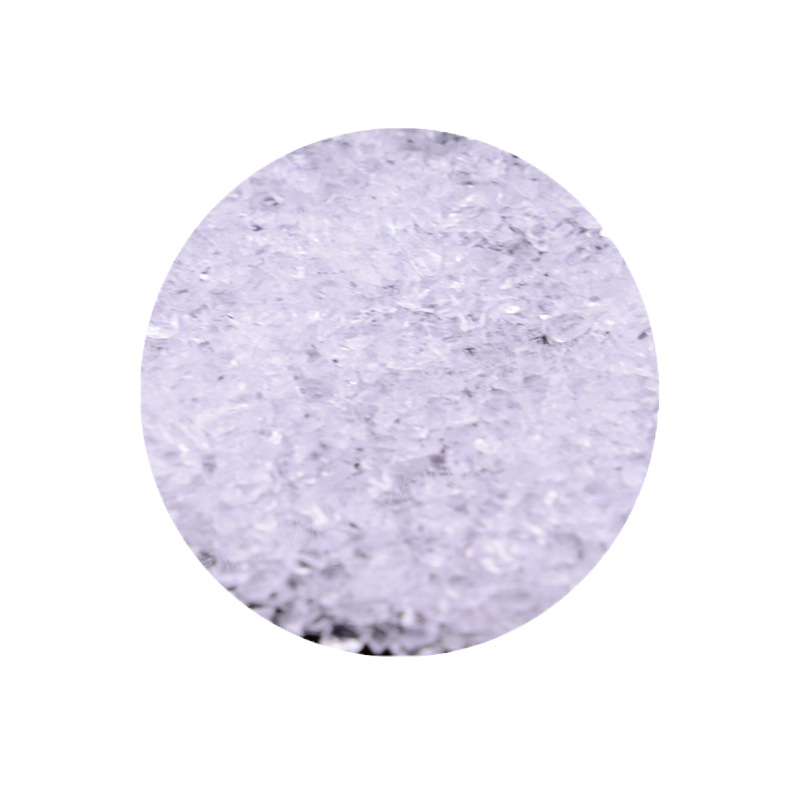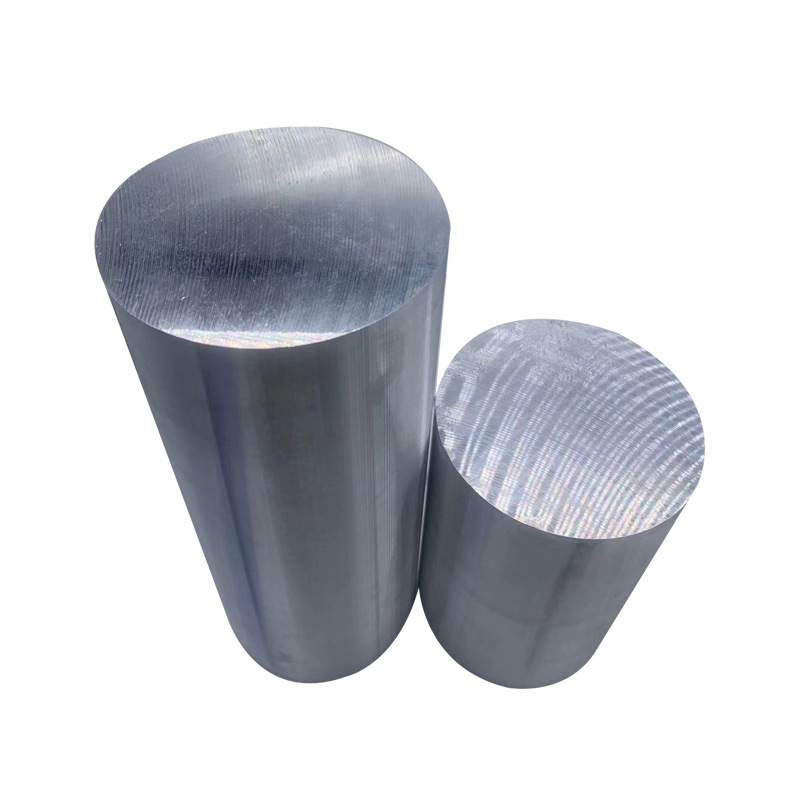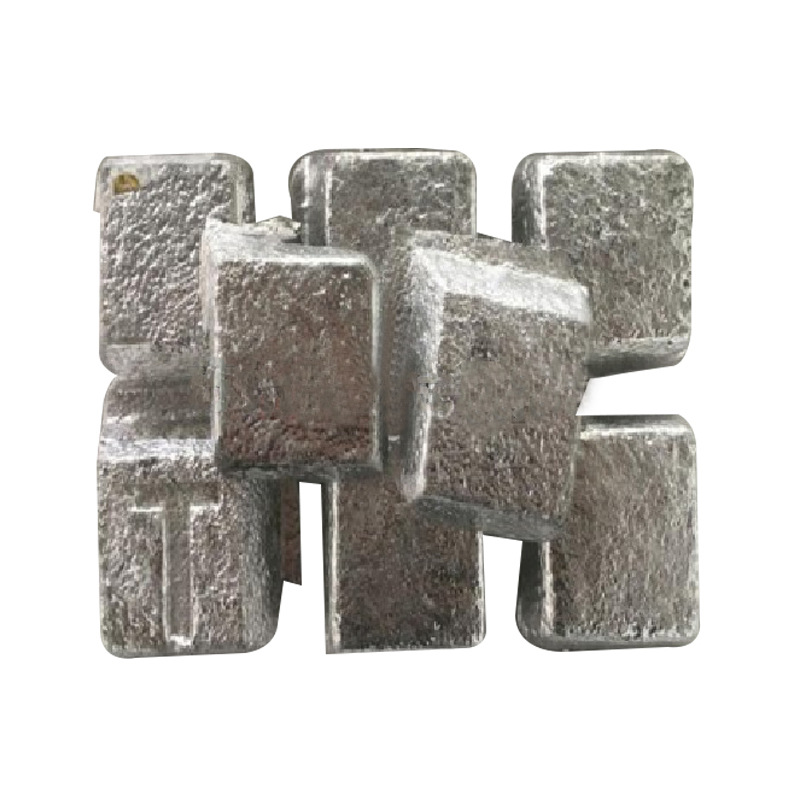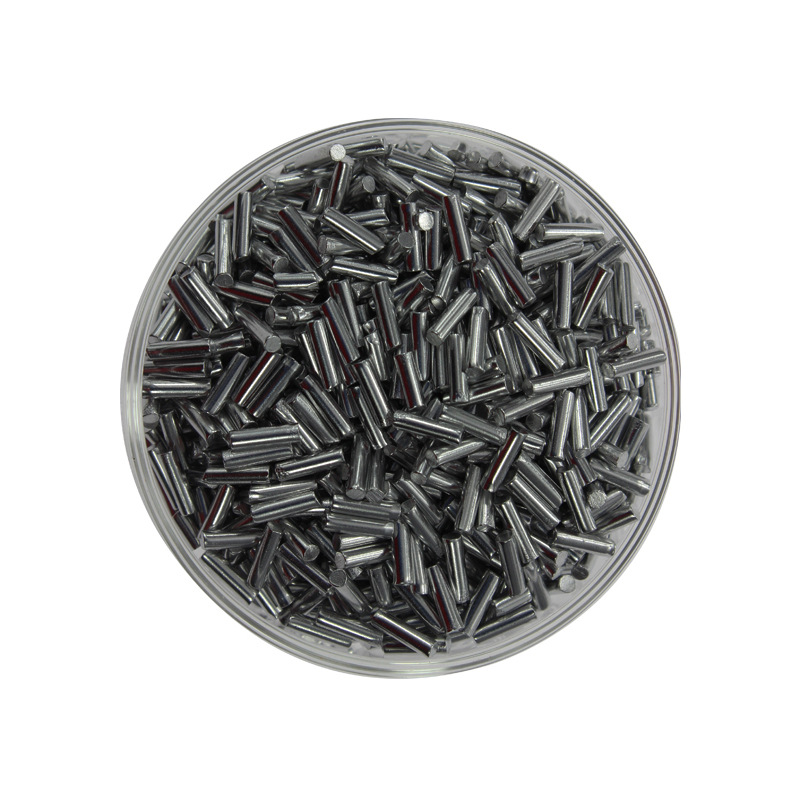Al Aluminium Wires 4N-6N (99.99%-99.9999%)
- High Electrical Conductivity: Aluminium has about 60% of the conductivity of copper, which makes it a suitable alternative for power transmission and electrical systems, especially when the weight is a concern.
- Lightweight: Aluminium wire is much lighter than copper wire, which makes it easier to handle, transport, and install, especially in large-scale projects like power lines and electrical cables.
- Corrosion Resistance: Aluminium forms a natural oxide layer when exposed to air, which protects it from corrosion and enhances its durability in outdoor and harsh environments.
- Malleability and Ductility: Aluminium wire can be easily drawn into thin wires or bent into shapes without breaking, offering flexibility for various uses, especially in flexible cabling applications.
- Thermal Conductivity: Aluminium wire has good thermal conductivity, making it suitable for applications where heat dissipation is necessary, such as in electrical power transmission and electronic components.
- Recyclability: Aluminium is 100% recyclable, maintaining its material properties without degradation, making it a sustainable choice for industries seeking environmentally friendly solutions.
Custom products or bulk orders, please contact us for competitive pricing!
- Satisfaction Guaranteed
- No Hassle Refunds
- Secure Payments
Description
Aluminium (Al) wire is a highly versatile and widely used material in various industries due to its excellent conductivity, lightweight, and corrosion resistance. As a cost-effective alternative to copper wire, it is frequently employed in electrical wiring, power distribution, telecommunications, and other applications where low weight and efficient performance are required.
Properties of Aluminium Wire
- High Electrical Conductivity: Aluminium has about 60% of the conductivity of copper, which makes it a suitable alternative for power transmission and electrical systems, especially when the weight is a concern.
- Lightweight: Aluminium wire is much lighter than copper wire, which makes it easier to handle, transport, and install, especially in large-scale projects like power lines and electrical cables.
- Corrosion Resistance: Aluminium forms a natural oxide layer when exposed to air, which protects it from corrosion and enhances its durability in outdoor and harsh environments.
- Malleability and Ductility: Aluminium wire can be easily drawn into thin wires or bent into shapes without breaking, offering flexibility for various uses, especially in flexible cabling applications.
- Thermal Conductivity: Aluminium wire has good thermal conductivity, making it suitable for applications where heat dissipation is necessary, such as in electrical power transmission and electronic components.
- Recyclability: Aluminium is 100% recyclable, maintaining its material properties without degradation, making it a sustainable choice for industries seeking environmentally friendly solutions.
Advantages of Aluminium Wire
- Lightweight: The low density of aluminium makes it the ideal choice for projects where weight reduction is crucial, such as aerospace and transportation applications.
- Cost-Effective: Aluminium wire is generally more affordable than copper wire, providing a cost-effective solution for electrical and industrial applications.
- Corrosion Resistance: The natural oxide coating of aluminium provides excellent protection against corrosion, making it highly suitable for outdoor installations, especially in coastal or industrial environments.
- High Electrical Efficiency: While aluminium has lower conductivity compared to copper, it still provides excellent electrical performance, particularly when larger gauge wires are used.
- Durability: Aluminium wire is strong, with excellent durability and resistance to environmental stresses, which makes it ideal for long-term use in demanding conditions.
- Sustainability: Being fully recyclable, aluminium wire is an environmentally friendly choice that can contribute to a circular economy and reduce waste.
Applications of Aluminium Wire
- Power Transmission and Distribution: Aluminium wire is widely used for electrical power transmission and distribution systems due to its lightweight, cost-effective, and durable properties, especially for long-distance transmission lines.
- Electrical Wiring: Aluminium is commonly used in residential and commercial electrical wiring, providing an efficient and affordable option for wiring systems.
- Telecommunications: Aluminium wire is used in the construction of telecommunications cables, including overhead lines, due to its balance of strength, conductivity, and low weight.
- Aerospace and Aviation: The lightweight nature of aluminium wire makes it ideal for applications in the aerospace industry, where reducing weight is essential to improving fuel efficiency and performance.
- Automotive and Transportation: Aluminium wire is used in vehicle wiring systems, electric vehicles (EVs), and other transportation applications, providing lightweight and efficient power delivery solutions.
- Electronics: Aluminium wire is also used in electronics for connectors, components, and internal wiring, benefiting from its electrical properties and lightweight nature.
- Renewable Energy Systems: Aluminium wire is employed in renewable energy applications, such as solar and wind power systems, where weight and cost efficiency are key factors.
- Submarine Cables: Due to its corrosion resistance, aluminium wire is used in submarine cables for marine and offshore applications, ensuring longevity and reliability in challenging environments.
Customization Options
- Wire Gauges and Sizes: Aluminium wire is available in a variety of gauges and sizes to meet specific electrical and industrial requirements, ranging from fine wires to large conductors for power lines.
- Insulation Types: Aluminium wire can be insulated with various materials such as PVC, Teflon, and polyethylene to suit different environmental and electrical demands.
- Plated Aluminium Wires: To improve performance and protect against corrosion, aluminium wires can be plated with materials such as tin or copper.
- Stranded or Solid Wire: Aluminium wire is available in stranded and solid forms, with stranded wire being more flexible and suitable for cables that need to bend, while solid wire offers better conductivity.
Tinsan Materials offers high-quality aluminium wire with outstanding electrical conductivity, corrosion resistance, and lightweight properties. Our aluminium wires are customizable to meet the specific needs of industries ranging from power distribution to aerospace, renewable energy, and telecommunications.
If you have specific requirements, such as sizes, purity, or application details, please contact us to match your needs.

